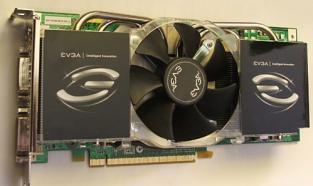OOPS! You forgot to upload swfobject.js ! You must upload this file for your form to work.
Intel chipsets will support USB 3.1 and Wi-Fi only in 2018
![]()
|
xtreview is your : Video card - cpu - memory - Hard drive - power supply unit source |
|
|||
|
|
||||
 Recommended : Free unlimited image hosting with image editor
Recommended : Free unlimited image hosting with image editor
|
POSTER: computer news || INTEL CHIPSETS WILL SUPPORT USB 3.1 AND WI-FI ONLY IN 2018 |
DATE:2017-06-17 |
|
|
Speaking of initiative to provide customers with the opportunity to implement Thunderbolt interface support in their own products for free, Intel noted that at one time it was the support for new interfaces with Intel chipsets that opened the way for them on the mass market. At least as soon as Intel platforms gained support for new versions of USB, the corresponding products immediately received massive distribution. Intel's "three-hundredth series" chipsets have already been attributed to the inborn support not only of USB 3.1, but also of the Wi-Fi wireless interface with gigabit data rates. It was assumed that the Intel 3xx chipsets will debut along with the 14-nm desktop processors of the Coffee Lake generation. Now we know that some of the processors of this series will be released in August this year, so they will have to accompany the chipset Intel Z370. Colleagues from the site DigiTimes argue that the Intel Z370 due to the postponement of the August debut of support for USB 3.1 of the second generation and Wi-Fi will be stripped, but the outcoming in early 2018, the chipset of the Intel Z390 and H370 will already be offered. Even the Gemini Lake platform, which implies the use of processors with a high degree of integration and low power consumption, will offer native Wi-Fi support at the end of this year. To less suffer from Intel corresponding steps , ASMedia implements USB 3.2 support in its discrete controllers, which can be claimed by the manufacturers of motherboards and laptops. Realtek from the transfer of the corresponding functionality to the Intel logic sets will also suffer, but only in 2018. To the end user, the implementation of support for new interfaces through the use of Intel chipset promises to save money when buying motherboards and laptops. | ||
|
|
||
|
xtreview is your : Video card - cpu - memory - Hard drive - power supply unit source |
|
|
|
|
||
|
Xtreview Support  N-Post:xxxx Xtreview Support        |
INTEL CHIPSETS WILL SUPPORT USB 3.1 AND WI-FI ONLY IN 2018 |
| Please Feel Free to write any Comment; Thanks  |
Unofficially about Intels plans to release 300-series chipset (2017-09-08)
The European Court sent Intel case on abuses for reconsideration (2017-09-07)
The six-core processor Intel Coffee Lake lit up at a Chinese auction (2017-09-06)
Compact systems Intel NUC based on Coffee Lake will be released in the second quarter of 2018 (2017-09-05)
Ilon Mask believes that the third world war can begin artificial intelligence (2017-09-05)
The six-core processor Intel Coffee Lake has conquered the frequency of 5.0 GHz (2017-09-05)
Morningstar experts believe that Intel has a good potential in the field of artificial intelligence (2017-09-04)
The mention of Coffee Lake on the Intel site indicates the proximity of the announcement (2017-09-03)
Intel introduced Movidius Myriad X the visual center for robots became smarter (2017-08-29)
Intel stops supplying Xeon Phi 7200 Knights Landing coprocessors (2017-08-26)
Intel Core i7-8700K seen in the companys motherboard ASRock Z370 Pro4 (2017-08-26)
Former CFO Intel is preparing to leave the company (2017-08-25)
Expansion of 10-nm Intel processors range will be on 2018 (2017-08-24)
Leaks on the performance of Intel Core i3-8350K Coffee Lake (2017-08-24)
Six-core processors Intel Coffee Lake should be released in October (2017-08-22)
Analysts believe that the new processors from Intel and AMD will revive the PC market in the second half of the year (2017-08-22)
Atom C3000 processors registered in the Intel Price List (2017-08-19)
Intel and BMW gather around themselves new partners to develop robots (2017-08-17)
Details about the budget SoC Intel Gemini Lake (2017-08-15)
Intel introduced a new form factor for SSD servers line (2017-08-10)
![]()
To figure out your best laptops .Welcome to XTreview.com. Here u can find a complete computer hardware guide and laptop rating .More than 500 reviews of modern PC to understand the basic architecture


7600gt review
7600gt is the middle card range.
We already benchmarked this video card and found that ...

 geforce 8800gtx and 8800gts
geforce 8800gtx and 8800gts  Xtreview software download Section
Xtreview software download Section  AMD TURION 64 X2 REVIEW
AMD TURION 64 X2 REVIEW  INTEL PENTIUM D 920 , INTEL PENTIUM D 930
INTEL PENTIUM D 920 , INTEL PENTIUM D 930  6800XT REVIEW
6800XT REVIEW  computer hardware REVIEW
computer hardware REVIEW  INTEL CONROE CORE DUO 2 REVIEW VS AMD AM2
INTEL CONROE CORE DUO 2 REVIEW VS AMD AM2  INTEL PENTIUM D 805 INTEL D805
INTEL PENTIUM D 805 INTEL D805  Free desktop wallpaper
Free desktop wallpaper  online fighting game
online fighting game  Xtreview price comparison center
Xtreview price comparison center Lastest 15 Reviews


Rss Feeds
Last News
- The new version of GPU-Z finally kills the belief in the miracle of Vega transformation
- The motherboard manufacturer confirms the characteristics of the processors Coffee Lake
- We are looking for copper coolers on NVIDIA Volta computing accelerators
- Unofficially about Intels plans to release 300-series chipset
- The Japanese representation of AMD offered monetary compensation to the first buyers of Ryzen Threadripper
- This year will not be released more than 45 million motherboards
- TSMC denies the presentation of charges from the antimonopoly authorities
- Radeon RX Vega 64 at frequencies 1802-1000 MHz updated the record GPUPI 1B
- AMD itself would like to believe that mobile processors Ryzen have already been released
- AMD Vega 20 will find application in accelerating computations
- Pre-orders for new iPhone start next week
- Radeon RX Vega 57, 58 and 59: the wonders of transformation
- ASML starts commercial delivery of EUV-scanners
- The older Skylake processors with a free multiplier are removed from production
- Meizu will release Android-smartphone based on Helio P40
- AMD Bristol Ridge processors are also available in American retail
- The fate of Toshiba Memory can be solved to the next environment
- duo GeForce GTX 1080 Ti in GPUPI 1B at frequencies of 2480-10320 MHz
- New Kentsfield overclocking record up to 5204 MHz
- Lenovo released Android-smartphone K8

HALO 3 HALO 3 - Final Fight!

PREY Prey is something you don t often see anymore: a totally unigue shooter experience.

computer news computer parts review Old Forum Downloads New Forum Login Join Articles terms Hardware blog Sitemap Get Freebies


